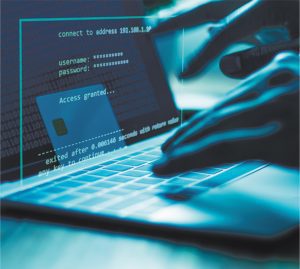By Anthony J. Dimora, Florida Estate Planning Attorney
 Estate planning is the practice of managing an individual’s assets if they pass away or become incapacitated. Oftentimes, estate planning includes arranging the transfer of the late individual’s assets to their family and loved ones. Traditionally, estate planning simply includes the transfer of assets, business interests, and essentially everything owned by a particular person before or at the time of their death that holds a monetary value.
Estate planning is the practice of managing an individual’s assets if they pass away or become incapacitated. Oftentimes, estate planning includes arranging the transfer of the late individual’s assets to their family and loved ones. Traditionally, estate planning simply includes the transfer of assets, business interests, and essentially everything owned by a particular person before or at the time of their death that holds a monetary value.
However, with the evolution of technology and the continuous rise in technological developments, digital assets have become an important aspect of estate planning. Therefore, it is extremely important to understand what a digital asset is and how it can be incorporated into estate plans.
What Are Digital Assets?
Digital assets include a wide range of digital documents stored online through electronic devices such as mobiles, tablets, laptops, and computers.
These range from important business documents, bank statements, and income-generating blogs and websites to more personal things such as family photos, social media accounts and any other item uploaded onto the internet. It is important to note that digital assets can now include different forms of cryptocurrency as well, such as Bitcoin. From a legal perspective, digital assets are considered the same as any other type of tangible property as they can be transferred to and from one another through estate planning. In short, digital assets are defined as assets that are online and should be considered as an important aspect of estate planning.
What Does Not Qualify as a Digital Asset?
An important distinction needs to be made between assets classified as digital assets and those that are not. For example, most financial assets will include electronic bank statements. However, while the bank document itself is a digital asset, the actual funds held within the bank account are not. Here, the funds are treated as any other tangible asset.
The same applies to cryptocurrency. Although the platforms used to access, buy and sell cryptocurrency are considered digital assets, the assets themselves such as Bitcoin and Dogecoin are not. These digital assets are simply considered part of the estate and are regulated completely differently.
The Importance of Digital Estate Planning
As technology takes over our day-to-day life, it is essential to have an estate plan that covers digital assets. If an individual has passed away or is now incapacitated, without a digital estate plan it will be difficult for their family and loved ones to access their digital assets.
Accessing digital assets without an estate plan can be an extremely cumbersome process, which may require family to engage in court proceedings that can be both time-consuming and costly. Additionally, without an estate plan that addresses digital assets, the question of who exactly gets ownership of an individual’s assets in the event of their death or incapacity arises.
Also, there may be many challenges faced by the family of an individual who recently passed away in gaining access to what has been left behind for them. These challenges, which can be avoided through careful estate planning, include identifying all digital assets, determining passwords, navigating data encryption, and dealing with the avoidance of violating data protection laws.
Most importantly, careful planning, allocating and incorporating digital assets into estate plans can help protect an individual’s digital assets from fraud, identity theft, and hacking.
Passwords
Without a written record of all passwords, the family of an individual who has recently passed away will not be able to access their personal information stored online. Make sure to create a complete and
comprehensive list of all your digital assets that include your username and password, and keep it in a secured place, such as a safe or with your estate planning attorney.
Encryption
Data stored electronically can also be encrypted, making it nearly impossible for anyone to access the data stored online. While it is critical to encrypt certain data and digital content, it is important to ensure that others can access these digital assets after the owner passes away.
Data Protection Laws
Lastly, data protection laws protect people from unauthorized access to electronic devices and access to personal data without the owner’s consent. Working with an experienced estate planning attorney can ensure that you follow all data protection laws while still allowing your beneficiaries and heirs to access your digital assets.
Creating a Digital Estate Plan Can Overcome These Challenges
The issues mentioned earlier can be easily avoided by incorporating digital assets into estate plans. By doing so, an individual can transfer the complete access of their digital assets to their family and loved ones and avoid additional legal challenges. Some of the ways that a person can begin to create a foundation for their estate plan that incorporates digital assets includes the following:
Having a Written Record of All Digital Assets
Firstly, it is important to make a clear list, inventory, or any other written record of your digital assets. The list should include details on where one’s family members and loved ones can find the digital assets and how they can access them through details of all emails, passwords, and answers to security questions of online accounts being provided.
Additionally, it needs to be clear that the owner of these digital assets is the deceased person. Therefore, at the time of making a list, there should be no confusion regarding who the digital asset owner is in terms of whether the digital asset has been bought or simply a license to use it has been bought. The individual should also inform the family members and loved ones how to access the list if they pass away or become incapacitated.
 Southwest Florida's Health and Wellness Magazine Health and Wellness Articles
Southwest Florida's Health and Wellness Magazine Health and Wellness Articles

